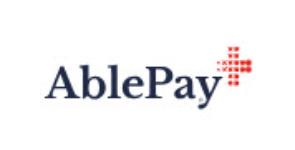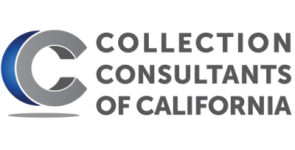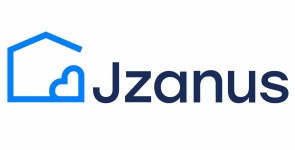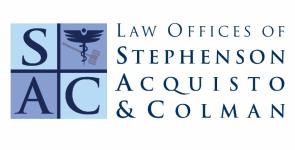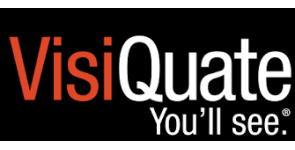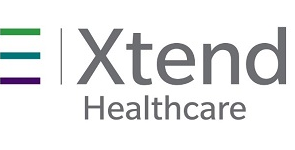Bylaws
California Association of Healthcare Admissions Management (CAHAM)ARTICLE I - NAME
A. Name
The name of this organization shall be the California Association of Healthcare Admissions Management (CAHAM), also referred to as the California Association of Healthcare Access Management (CAHAM).
B. Primary Purpose
The primary purpose of CAHAM is to operate a professional association within the meaning of Section 23701e of the California Revenue and Taxation Code.
This organization does not contemplate pecuniary gain or profit to the members thereof and is organized for nonprofit purposes.
This organization will develop, encourage and implement programs for the purpose of furthering the education and increasing the knowledge of members and others in healthcare admissions (access) management.
Notwithstanding any of the above statements of purposes and powers, this association shall not, except to an insubstantial degree, engage in any activities or exercise any powers that are not in furtherance of the specific purpose of the association.
ARTICLE II - MEMBERSHIP
A. Definition
There shall be three categories of membership in the organization: Active Membership, Honorary Membership, and Business Partner Membership.
Active Membership: To be considered an active and/or committee member, membership dues must be current. Persons having responsibility for managing, training, or consulting within the healthcare continuum and other healthcare professionals interested in patient access and revenue cycle services. Members are entitled to one (1) vote, may serve as a committee member, hold office, or serve as a committee chair in accordance with these bylaws.
Honorary Membership: Limited to a person who has demonstrated dedicated service to the Association or the patient access and revenue cycle services area. Upon approval by the Board of Directors, these members shall be exempt from dues and shall be ex-officio members ineligible to vote, hold office, or serve as a committee chair, but may serve as a committee member.
Business Partner Membership: To be considered an active and/or committee member, membership dues must be current. Individuals working with business who service the healthcare industry with particular relevance to patient access and revenue cycle services. These members shall be ex-officio members ineligible to vote.
B. Conditions of Membership
1. Membership shall not be transferable or assignable from individual to individual.
2. The Board of Directors may confer the status of board emeritus and honorary member, et al, upon an individual recognized for their outstanding contributions and meritorious services to the organization. These members shall be exempt from dues and shall be ex-officio members ineligible to vote, hold office, nor serve as a committee chair, but may serve as a committee member.
C. Dues/Fees
1. Annual membership dues shall be for one calendar year, January 1 to December 31, in an amount to be established by the Board of Directors.
ARTICLE III - VOTING
A. Eligibility
Each eligible member shall be entitled to one vote on each issue submitted for a vote. Proxy voting shall not be permitted.
B. Voting
1. In order to vote, one must be a paid member.
2. Voting shall be cast in person, virtual, or by email on an appropriate ballot.
3. A system of distributing the ballots and receiving of the membership votes shall be designated to maintain the security and secrecy of the ballots and votes.
4. Ballots must be accessible to the members at least (30) days prior to the deadline. The ballots must be returned by the members at least (10) days prior to the deadline at which time such votes are tabulated and ratified by a majority vote of the Board of Directors.
5. All ballots, including electronic ballots, shall be kept for 30 days after the results are announced in the event that recounts may be required.
C. Majority
All matters, except as otherwise specified in these by-laws, shall require a simple majority of those voting.
D. Quorum
1. A simple majority of the members voting by mail on an appropriate ballot or in person during the meeting shall constitute a quorum.
2. There shall be no quorum requirements to convene an annual or special meeting of the membership.
3. The President or a majority of the Board of Directors shall be required to convene a meeting of the Board. A majority of those present at such a Board of Directors meeting shall be required for the passage of any business.
ARTICLE IV - MEETINGS
A. Meetings
The Annual Meeting of the Association shall be held each year at a site determined by the Board of Directors. There is no quorum for meetings of the Association. Resolutions to be submitted to the Active Membership for vote will require a majority vote of all Active Members in attendance and voting.
B. Special Meetings
Special meetings of the Association may be called at any time by the President, or in his/her absence by the Vice President, Treasurer, or Secretary, on the written request of a majority of members of the Association. Ten (10) day notice of any special meeting must be given to the members of the Association, and the notice must state the subject of the meeting.
ARTICLE V - BOARD OF DIRECTORS
A. Composition of the Board of Directors
1. The officers of the Association shall be President, Vice President, Secretary and Treasurer.
2. Ex officio members of the Board of Directors shall constitute honorary, business, and/or appointed subject matter experts as needed at the discretion of the Board of Directors.
3. Increases in the number of Directors shall be by a majority vote of all members of the Board of Directors.
4. To run for a board seat, one must be an active member. An application and resume must be submitted to the Secretary for consideration. The election of officers may take place prior to the Association’s educational conference, but not later than, or at a prescribed time determined by the Board of Directors during years whereby an educational conference is not held.
ARTICLE VI - POWERS and RESPONSIBILITIES OF THE BOARD OF DIRECTORS
A. Powers of the Board of Directors
The Board of Directors shall have supervisor, control and direction of the affairs of the Association, shall determine its policies or changes therein within the limits of the bylaws, shall actively prosecute its purposes and shall have discretion in the disbursement of its funds. It may adopt such rules and regulations for the conduct of its business as shall be deemed advisable and may, in the execution of the powers granted, appoint such agents, as it may consider necessary.
B. Responsibilities of the Executive Officers
President: Shall be responsible for conducting the business of the Association and shall preside at all meetings of the Association and Board of Directors. He/She shall appoint all Committee chairpersons with the approval of the Board of Directors, shall appoint Ad-Hoc committees. He/She will consult with the Board of Directors and keep them fully informed so that the programs and activities of the Association may be coordinated and accomplished as well as communicated to the membership. He/She will oversee the operational and strategic management of the Association, and in general, perform all duties of the office of President.
Vice President: In the absence of the President, or during the incapacity of the President, the Vice President shall perform all duties. The Vice President will perform such duties as may be assigned by the President including but not limited to the educational conference coordinator and liaison to all Board Members.
Secretary: Shall keep minutes of all Association related meetings, carry out all orders, votes and resolutions of the Association and shall perform such other duties as are incident to the office of Secretary and/or duties delegated by resolution of the Board of Directors. The secretary assures that such protocol is followed in all meetings of the Association, Board of Directors, and any related subcommittees. He/She will ensure that all copies of minutes are provided to the President and other officers of the Board of Directors as appropriate. The Secretary shall maintain the documents in addition to the bylaws while ensuring compliance by membership and Board of Directors. He/She will maintain all documents, books, and photographs related to the Association.
Treasurer: The treasurer shall keep account of all monies received and expended for the use of the Association. All transactions are subject to the approval of the President and must be in accordance with the budget adopted by the Board of Directors. He/She shall review the financial status on a regular basis and report quarterly to the Board of Directors an annually to membership. The treasurer will ensure that federal and state taxes are filed annually to ensure the organization’s non-profit status. Books and records of the Association shall be audited annually by an independent Certified Public Accountant appointed by the President. The Treasurer will chair financial sub-committee meetings as appropriate.
C. Responsibilities of the Board Officers
Social Media Chairperson: The Social Media Chairperson will develop and maintain formal publications including press releases of the Association for the membership at large. He/she will direct advertising solicitation under the direction of the Board of Directors. He/She will encourage the membership to provide articles and news for dissemination to the membership, vendors, business partners, and other interested parties. He/She will be responsible for the selection of relevant industry related articles accessible in print or electronic media format.
Education Chairperson: The Education Chairperson shall direct all educational endeavors, including but not limited to regional training and webinar sessions that enhance and promote educational opportunities focused upon Association relevance, both professional and geared toward personal enrichment. These educational events shall meet the required industry quality standards. He/She shall issue appropriate credits for continued education, as necessary. He/She will ensure that the Associated adheres to collaborative organizations rules and regulations for continued education.
Technology Chairperson: The Technology Chairperson shall maintain the CAHAM website, create conference and webinar registrations, maintain membership database, create, and distribute invoices, process electronic payments, provide technical assistance at educational conferences and/or meetings, and provide overall website content management.
Advisory Chairperson: The Advisory Board Chairperson shall serve the President and Board of Directors, in a consulting capacity as a source of information, insight, and expertise in areas not necessarily represented on the Board of Directors. The Advisory Board Chairperson or committee need not be a Patient Access or Revenue Cycle director/manager.
D. Terms of Office
Each of the elective Officers and Members of the Board shall be elected for and serve a minimum of three (3) years. Their term of office shall commence upon ratification of elections and continue immediately after installation. They shall remain in office until expiration of their term of office unless they resign and become ineligible due to change in profession or other reasons. An Officer or Director may serve no more than (2) terms in his/her current board position. Should there be no interest or qualified persons seeking office for the Board of Directors, then existing Board will remain intact.
E. Board of Directors Vacancies
If any member of the Board of Directors shall for any reason, fail to perform or be unable to perform the duties of his/her office, the remaining Board of Directors may declare the office vacated by a two-thirds (2/3) vote of the full Board. If a Board member has been deemed in violation of general and reasonable code of conduct, the Board of Directors, by a majority vote, may appoint a successor to fill the unexpired term of the said office.
ARTICLE VI - STANDING COMMITTEES
A. Ad hoc Chairpersons and Other Committees, Rules, Term of Appointment:
1. The President shall have the authority to appoint special committees relative to the objectives of CAHAM.
2. The term of all committee memberships shall expire at the time so designated by the Board of Directors.
3. The Chairperson of each committee may adopt rules for its own governance consistent with these bylaws or with rules adopted by the Board of Directors.
Under these bylaws, the Board of Directors may enter into a contract in the name of and on behalf of the Association, and such authority may be general or confined to specific instances.
ARTICLE VIII - AMENDMENTS
The bylaws of the Association may be changed, amended, or repealed by simple majority of the Board of Directors, or a membership call for changes, amendments or repeals, during the annual membership business meeting , or during a special meeting called. Voting shall be cast in person, virtual, or by email.
ARTICLE IX - INDEMNIFICATION OF OFFICERS OR DIRECTORS
Indemnification of the Board of Directors or any person who may serve or has served at the request of the Association or by its elections Director or Officer, shall be indemnified by the Association against expenses actually necessarily incurred by them in connection with the defense or settlement of any action, suit, or proceeding in which they or any of them are made parties or a party by reason of having been an officer, except in relation to matters in which they shall be adjudged in such action, suit, or proceeding to be liable for misconduct in the performance of duty in such matters that shall be settled by agreement predicated in the existence of liability.
ARTICLE X - DISSOLUTION
The Association shall use its funds only to accomplish the objectives and purposes specified in these bylaws, and no part of said funds shall insure, or be distributed to the members of the association upon dissolution of the association, any funds remaining shall be distributed to one or more regularly organized and qualified charitable, educational, scientific, or philanthropic organizations to be selected by the Board of Directors.

